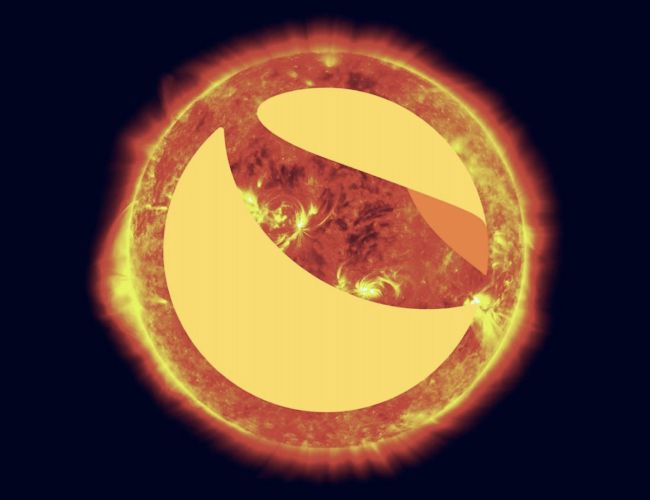Terra Classic (LUNC) recently experienced a 7% price increase after announcing Proposal #12131. This suggestion, now open for voting, seeks to upgrade the Terra Classic network to version 3.1.5.
The improvement includes essential security patches and aims to enhance efficiency. These changes have sparked optimism among investors and community members, driving up trade activity.
$LUNC proposal #12131 is live for voting.
— Mr. Diamondhandz1💎 (@MrDiamondhandz1) September 9, 2024
This proposal, if passed, will upgrade the network to v3.1.5 which adds a security patch for wasmd and includes changes from v3.1.4 with a gas simulation patch.
Looks good to me. Let’s pass it and upgrade #LUNC. 💎🤲🏻 #Crypto #Binance https://t.co/MDz3Iuton5
Proposal #12131: Security and Upgrade Plan
Proposal #12131 addresses prospective security risks within the Terra Classic system. It includes a security patch for Wasmd, a crucial ecosystem component that is necessary to keep the network secure from threats.
Additionally, the proposal aims to improve transaction processing by introducing a gas simulation patch from version 3.1.4. These changes are expected to strengthen the network and enhance the user experience.
The proposal also sets a halt height of 19,850,000, likely to occur around September 18th at 11:15 AM UTC. If the community approves the proposal, this halt height will trigger the network upgrade to version 3.1.5.
Market Reaction and Price Movement
The market responded positively to Proposal #12131. LUNC’s trading volume surged to $19,811,560, which helped LUNC reach #114 on CoinMarketCap. The rise in trading volume shows renewed investor confidence in Terra Classic. Investors closely watch the community’s response to the proposal since it will decide if the network upgrade happens as planned.
To fully understand the network’s current situation, it’s essential to know its history and the challenges it has faced. Terra was launched in January 2018 to build decentralized applications focused on payments and financial services.
LUNC’s Rebranding and Rebuilding Journey
The project’s native currency was originally called Terra but was later rebranded to Luna to avoid confusion with the broader Terra blockchain platform. Luna played a key role in the Terra ecosystem. It operated alongside Terra USD (UST), an algorithmically managed stablecoin designed to maintain its 1:1 peg to the US dollar.
This relationship allowed Terra to offer fast and affordable transactions, making it a significant player in blockchain-based payment systems. However, in May 2022, Terra faced a major collapse due to instability in its tokenomics.
A bank run on UST led to its de-pegging from the US dollar, causing Luna to lose its value. This event triggered a crisis that shook the entire cryptocurrency market. Terraform Labs responded by proposing a hard fork reorganization of the Terra blockchain.
As a result, the original Luna token was renamed to LUNC, and a new Luna token was created with the ticker LUNA. Despite the rebranding, LUNC struggled to regain its value, leaving the community with the challenge of rebuilding trust in the network.
The upcoming network upgrade is a critical step in this rebuilding process. It can potentially address some of the issues that led to the initial collapse.
Validators’ Role in Terra 2.0
While Terra Classic has set itself for an upgrade, the operator is shifting the focus to the security status of validators. Terra 2.0’, the new chain created after the hard fork, Ethereum 2.0, is based on a proof of stake consensus.
This system uses 130 such validators who participate in the network’s consensus. Validators are selected based on the amount of LUNA 2.0 they have staked. The more staking they have done, the higher their decision-making votes.
Validators offer protection to the network as they participate in validating transactions and the consensus. This is done through gas fees and a constant annual inflation rate of 7% for LUNA 2. 0. LUNA 2. Holders with zero tokens can stake their tokens to a validator of their choice, giving them the chance to participate in the consensus mechanism.
Delegators also benefit from this system, as they receive part of the rewards generated by the validators. However, there are risks. Validators can be penalized for misbehavior, like being offline for too long. This can result in some of their staked LUNA 2.0 being slashed. This risk highlights the need to choose reliable validators and stay informed about network developments.
The rewards from staking and delegation are essential in the Terra 2.0 ecosystem. They encourage active participation and help secure the network. As the community faces the challenges of rebuilding and enhancing the network, validators will continue to be crucial to Terra 2.0’s success.
A Key Moment for Terra Classic
As Terra Classic faces its current challenges, the community is at a critical point with the proposed network upgrade. The outcome of Proposal #12131 will determine the network’s next steps and ability to regain stability and market confidence.
The community’s decision will affect the immediate success of the upgrade and influence future developments within the Terra Classic ecosystem.
The proposed upgrade represents a significant opportunity for Terra Classic to reestablish itself as a strong player in the cryptocurrency market. The success of the upgrade depends on the community’s willingness to accept the changes and the technical execution of the upgrade.
Critical Vote on Proposal #12131 Looms
As the network approaches the critical halt height on September 18th, the community’s response to Proposal #12131 will be closely watched. This vote result will significantly impact Terra Classic’s future. If the proposal is implemented, then the upgrade will be complete, and if done correctly, further enhancement and usage may follow.
Nevertheless, any problems during the upgrade may lead to instability and, therefore, the deterioration of LUNC’s market standing and investor trust.
However, as the community considers possible solutions, it is imperative to stress the need to protect, enhance, and sustain the network. Terra Classic’s flexibility, required to meet the growing needs of the blockchain ecosystem, will play a significant role in its future development.
 cryptonews.net
cryptonews.net
